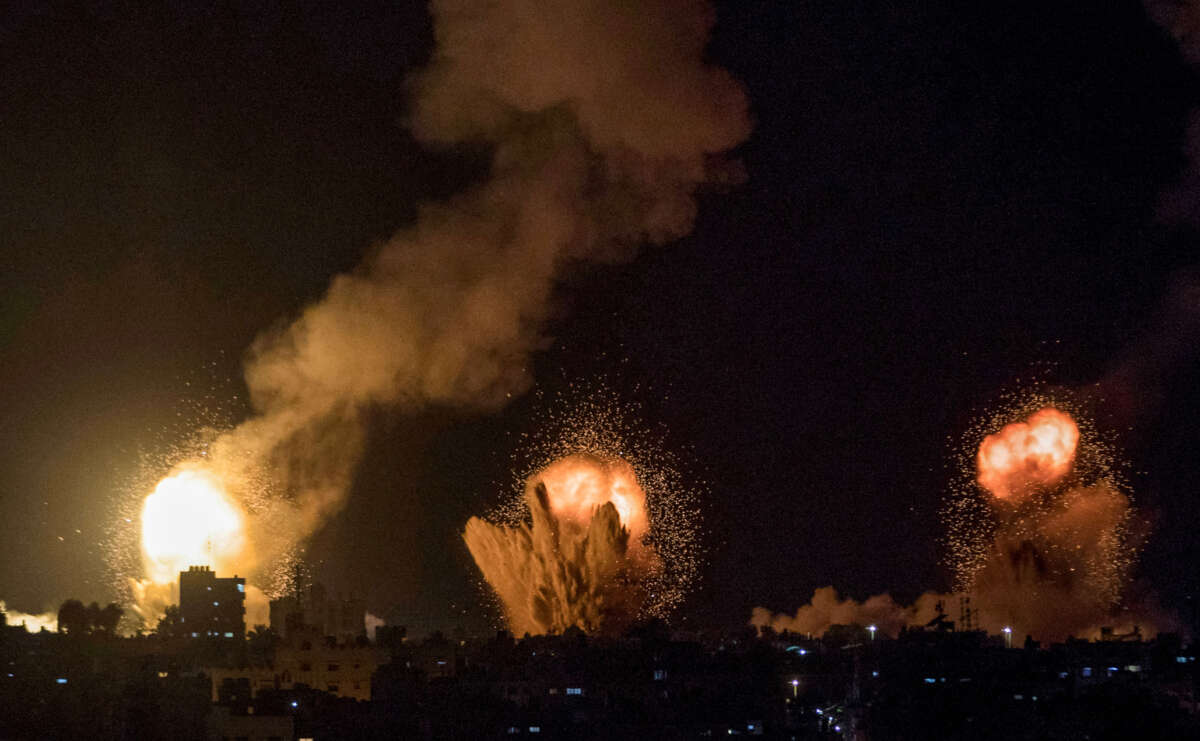Fears of a wider conflict in the Middle East mounted Friday after Israel bombed Lebanon and the occupied Gaza Strip in the early hours of the morning, an assault that followed two consecutive nights of violent raids on the Al-Aqsa mosque compound.
The raids spurred global condemnation and retaliatory rocket fire from southern Lebanon and Gaza, prompting Israel’s latest barrage of airstrikes.
While Israeli Prime Minister Benjamin Netanyahu responded to the rocket fire with hawkish rhetoric, vowing to “extract a heavy price from our enemies,” other Israeli officials and Lebanon’s caretaker prime minister Najib Mikati cautioned against further violence.
“Nobody wants an escalation right now,” an Israeli army spokesman told reporters. “Quiet will be answered with quiet, at this stage I think, at least in the coming hours.”
Najib Mikati, Lebanon’s caretaker prime minister, similarly said his government “categorically rejects any military escalation,” adding that an investigation into the rocket attacks that originated in southern Lebanon was ongoing.
The Associated Press reported Friday that “no faction in Lebanon claimed responsibility for the salvo of rockets,” the largest such attack since the deadly 2006 war between Israeli and Lebanon.
“A Lebanese security official, who spoke on the condition of anonymity because he was not authorized to speak to media, said the country’s security forces believed the rockets were launched by a Lebanon-based Palestinian militant group, not by Hezbollah,” the outlet noted.
No injuries or deaths have been reported in the wake of the Israeli airstrikes, which damaged homes, buildings, and other infrastructure in Lebanon and Gaza. One 19-year-old was lightly injured by shrapnel from the rocket fire into Israel, according to Israeli authorities.
The United Nations Interim Force in Lebanon (UNIFIL) said in a statement Friday that while Israeli and Lebanese officials have “both said they do not want a war,” the “actions over the past day are dangerous and risk a serious escalation.”
“We urge all parties to cease all actions across the Blue Line now,” UNIFIL added.
Israeli forces’ raids on the Al-Aqsa mosque compound and attacks on Palestinian worshipers this week have been vocally denounced by governments and human rights organizations. In 2021, Israeli raids of Al-Aqsa and responses from the Gaza Strip led to a devastating 11-day assault on the besieged enclave.
Heba Morayef, Amnesty International’s regional director for the Middle East and North Africa, said in a statement Thursday that “these orchestrated attacks demonstrate just how far Israeli authorities will go to maintain their cruel system of apartheid.”
“Shocking footage from the past two days shows Israeli security forces beating men, women, and children, and dragging them out of the mosque where they had gathered to spend the night in peaceful prayer and reflection,” said Morayef. “Once again, Israeli security forces have shown the world what apartheid looks like.”
Join us in defending the truth before it’s too late
The future of independent journalism is uncertain, and the consequences of losing it are too grave to ignore. To ensure Truthout remains safe, strong, and free, we need to raise $34,000 in the next 72 hours. Every dollar raised goes directly toward the costs of producing news you can trust.
Please give what you can — because by supporting us with a tax-deductible donation, you’re not just preserving a source of news, you’re helping to safeguard what’s left of our democracy.
